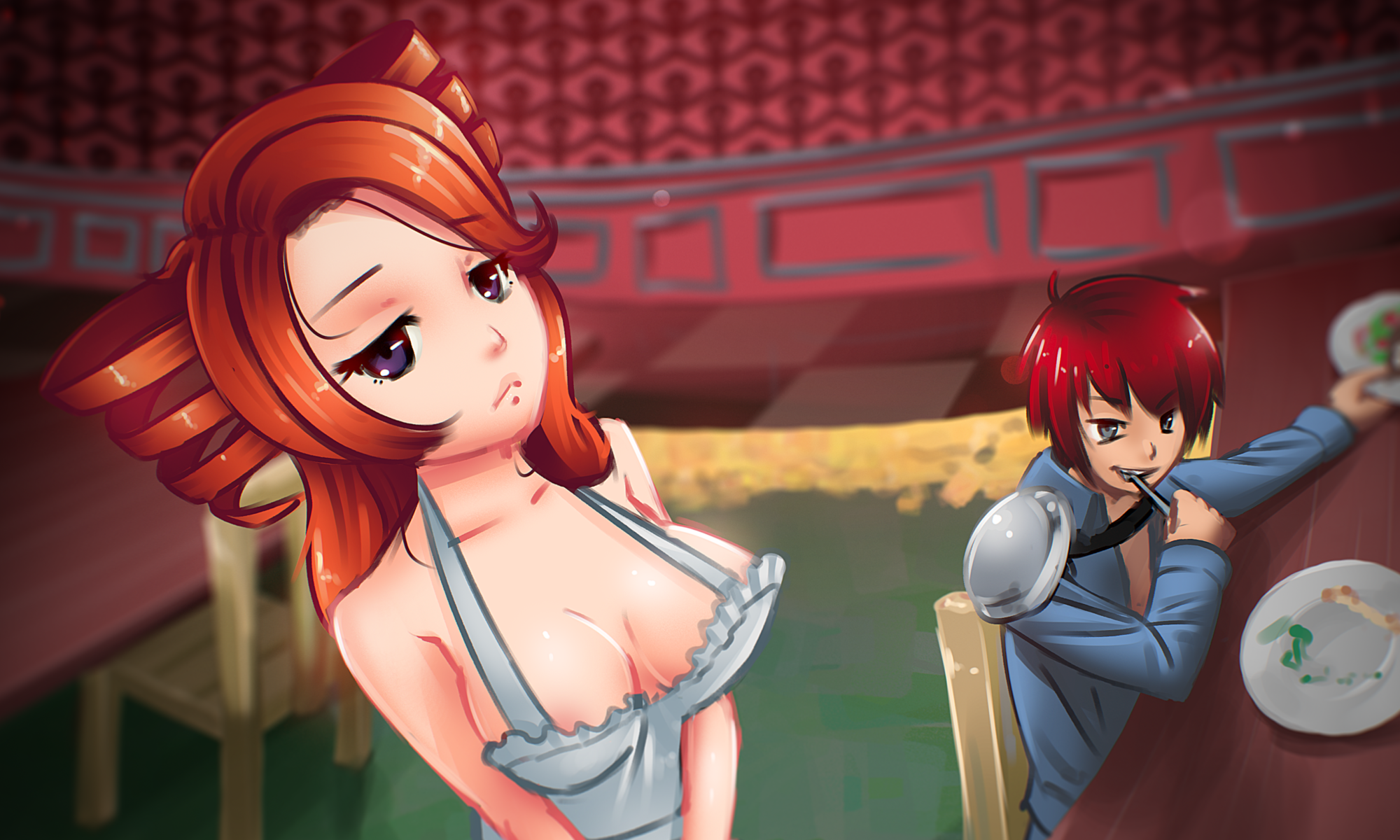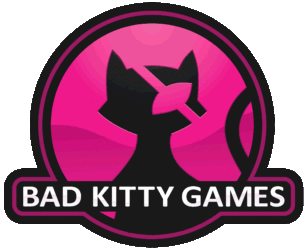I hear an awful lot from other amateur game devs like me, who ask how I manage to avoid the game design version of writer’s block (which I’ve decided to call dev fatigue, because that’s shorter). After all, Harem Collector is a pretty big game already as RPG Maker games go, and a lot more projects burn out in the early stages. So here’s my advice on how to avoid burnout and keep working on your projects for years to come.
1) Learn and use what inspires you
It happens a lot- you start a project because you feel really inspired by something, and then when that something is implemented, or you just get tired of working on it, the project falls through. I’ve done this a million times, and I’m somewhat notorious around my friends for ending tabletop RPGs just because I got bored with the system we’re currently using and excited about something different.
My advice for game designers is to ride that crazy wave as far as it will take you. Find a way to incorporate your new crazy passion into your existing project, even if you’re abandoning a mechanic or a segment that’s halfway finished. It’s better to get lots of work done on something you’re excited about than fight to complete something you’re not. Even Shigeru Miyamoto does this- right around the end of the N64 life cycle, several Nintendo games like Donkey Kong 64 and LoZ: Majora’s Mask incorporated camera functions that absolutely nobody was asking for. Some games- Pokemon Snap probably being the best one- were just a camera minigame blown up into full size, and the Game Boy Camera was a peripheral designed just for this purpose. Maybe the technology had something to do with it- storage finally becoming good enough to save multiple screenshots- but all this was triggered by Miyamoto-sensei picking up photography as a hobby.
Example from Harem Collector: I had a really great idea for a dungeon- an illusionist’s home, which has been “touched up” by said illusionist with huge vistas and bizarre architecture, including converting his basement into a tropical beach. All done with magical illusions of course. But at the time, I was working on incorporating weapon upgrades and the blacksmith into the game. So I came up with an excuse quest, that would both include this great new dungeon I designed, as well as work the blacksmith into the game.
But what about that half-completed water dungeon (or crafting system, or whatever) you just abandoned? Well…
2) Some days just won’t work out, play catch up instead
For whatever reason, some days you just can’t come up with new and interesting stuff. No worries- that’s your cue to pick up where you left off on something old. Slogging away at something you’ve lost your passion for is better than struggling to create new content and getting nothing done. Besides, occasionally working on old, boring stuff and just getting shit done will catapult you into a better mood, where you can create something new and exciting.
Example from Harem Collector: This actually happened to me very recently. I was feeling kind of burned out, so I decided to work on touching up the world map. That day I worked on the world map literally until my hands ached, and later that week I was able to bounce back and get caught up on Meline’s Love Quest.
3) Experience different things
There are a lot of really diehard people out there who only enjoy one genre of game. This is fine on it’s own, but as a game designer you should feel obligated to play as many games as you can try. This has a practical purpose- you can examine other games, see what works and what doesn’t, and incorporate those lessons into your own design- but it can also help inspire you. A person who only plays JRPGs is going to create games that all feels and behave exactly like Dragon Quest. A designer who plays FPSes to the exclusion of all else, is going to make a lot of sub-par versions of Halo or Call of Battlefield or whatever. Those willing to be inspired by other other genres, however, mixing things like JRPGs with dating sims, stealth games with city management sims, survival horror with tower defense, and RTSes with western RPGs, are going to come up with games that feel really unique.
I encourage you to do this with other things other than gaming genres, as well. Who knew that there would be great games resulting from the mix of FPSes with objectivism, JRPGs with time travel, and Princess Maker with Game of Thrones?
Experiencing different things- be they game genres or whatever else- increases your reference pool of ideas. Think about ideas as being the DNA of creative works, and the more ideas you have to work with, the fuller (and easier to work on) your game will feel. So hit the library, go on a wiki walk, or take a course to try and learn something new.
Example from Harem Collector: Almost too many to name. Kyrie’s magic preferences were informed by D&D 4th ed. The cannery was inspired by a Neko Case song. Elven culture was informed by the Japanese dating scene. The list goes on, but so has this post, so it’s time to wrap things up.
So there you have it- incorporate new passions when they come up, save boring jobs for blah days, and experience everything the world has to offer. Hope that helps.


It sounds like you have a lot planned for Harem Collector. This all sounds wonderful, although there is something I’m worried about… Are you planning on adding any One-Hit Wonder (you know, enemy touch insta-kill – think Clickers from The Last of Us) or game-over stealth elements to the game? See, truth be told I’m absolutely terrible at stealth elements in a game, especially when they’re required to pass a game segment. So, adding things like enemies that can insta-kill you if they touch you or elements where you get an instant game-over if you’re spotted by an enemy would make things a whole lot more difficult and less enjoyable for me.
I mean, don’t get me wrong: As I typed before in an earlier post, I love the game. I mean, it really is great – I honestly feel like it’s a work of art, and that’s no exaggeration. All I’m asking is, if you do add stealth elements to the game, could they maybe be optional? I mean, in a stealth segment I don’t mind having to fight additional enemies just because I’m bad at stealth. I can certainly live with a consequence like that, having to fight your way out of a bad situation. I just don’t want to be treated to a game-over screen because I’m not that good at hide-and-seek. I mean don’t get me wrong, I play games like Assassin’s Creed, but I even have trouble with the stealth elements in those.
Oh god no. I don’t know if you’ve been following Stealth games over the years, but they are difficult as balls to get right- thus why so many games consistently fail at them. Game designers are only very recently starting to grok how to make them.
I mentioned the genre/element mashups above just as examples of popular games that have been made by squishing together the peanut butter of one genre with the jam of another.
That number 2 and 3 on the list, I already know but that number 1 is new to me, maybe that’s why I can’t get anything done because I’m bored as hell(I don’t even touch the game maker itself). Good thing I read this post, I knew it only HC can help me. Thanks!
That’s what we’re here for.